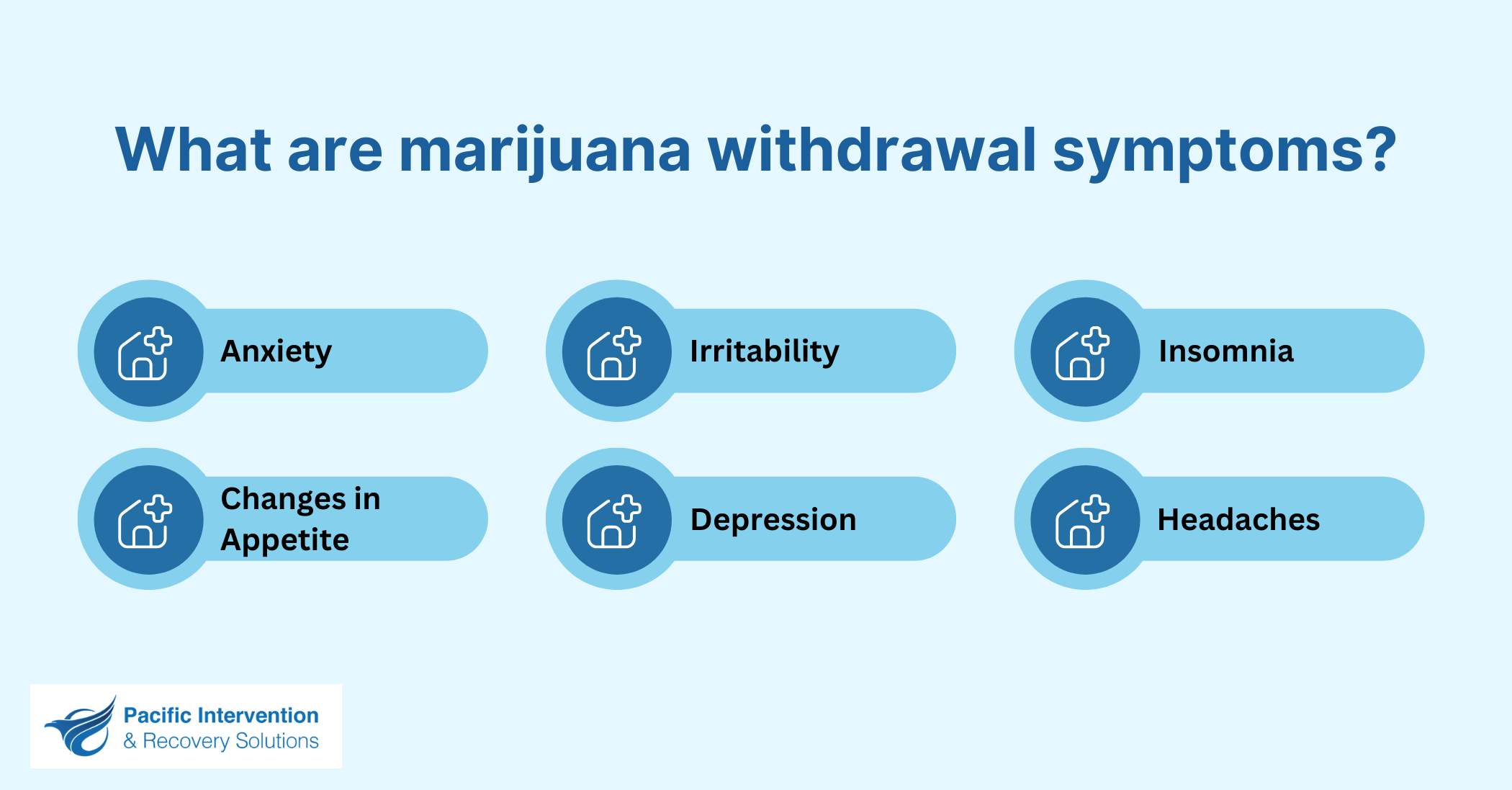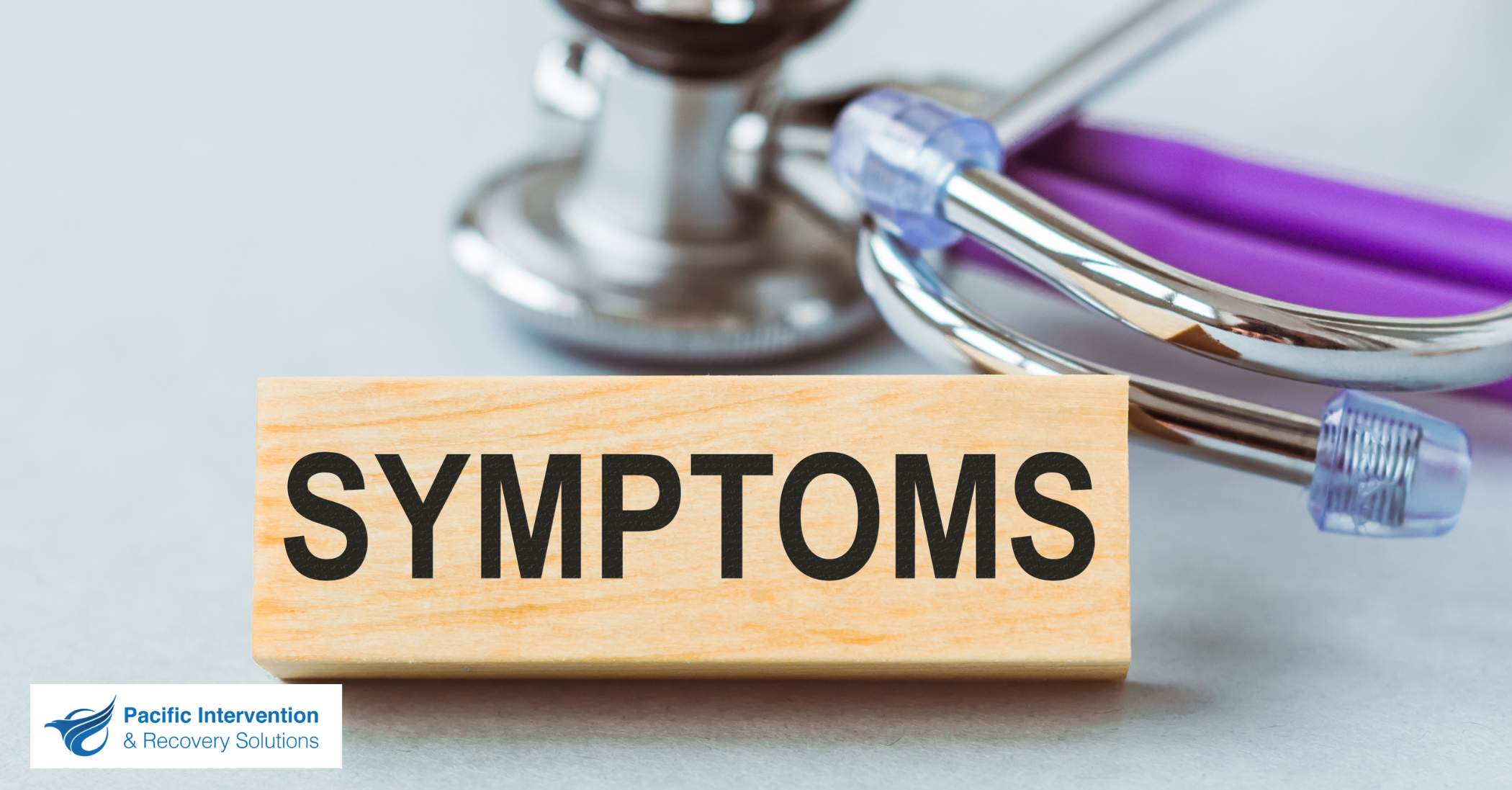As cannabis use rises globally, understanding marijuana withdrawal is essential for those considering quitting. When someone stops using cannabis, they may experience a range of challenging symptoms.
This article addresses a crucial question: “How long do marijuana withdrawal symptoms last?” Recognizing these symptoms and their duration can help individuals better prepare for a successful recovery journey.
How long will marijuana withdrawal symptoms last?
Quitting marijuana can be challenging. Withdrawal symptoms typically peak within the first week and gradually improve over the next 2 to 4 weeks. For some, however, symptoms may persist for months in what is known as Post-Acute Withdrawal Syndrome (PAWS).

Timeline of Marijuana Withdrawal Symptoms
Knowing when withdrawal symptoms may arise can help individuals plan and stay motivated in their recovery journey. Here’s what to expect:
First 24-72 Hours
In the first day or two after quitting marijuana, initial withdrawal symptoms typically appear, such as heightened anxiety and irritability. Many report that these symptoms peak during this period, so it’s essential to have coping strategies ready.
Week 1
Throughout the first week, individuals may experience a range of emotions. While some symptoms begin to lessen, others, like insomnia, may persist. This week is often the most challenging, marked by intense emotional and physical distress.
Weeks 2-4
By the second week of quitting marijuana, withdrawal symptoms often start to ease. However, mood swings and changes in appetite may continue. As recovery progresses, symptoms tend to improve with occasional fluctuations—some days showing more progress than others.
Beyond 4 Weeks
For most, withdrawal symptoms subside within a month, but some may experience lingering effects, known as Post-Acute Withdrawal Syndrome (PAWS). PAWS symptoms can include persistent mood swings, appetite changes, and sleep disturbances.
What are marijuana withdrawal symptoms?
Marijuana withdrawal symptoms are the physical and mental effects that occur when someone stops using the substance after prolonged use. These symptoms arise because the brain must adjust to the absence of THC, the primary psychoactive compound in cannabis.

Anxiety
After quitting marijuana, some people experience heightened anxiety, ranging from mild agitation to severe panic episodes. Without the calming effects of THC, the body may become more sensitive to stress, leading to racing thoughts, constant worry, and physical symptoms such as sweating, trembling, or a rapid heartbeat.
Irritability
Irritability is a typical response as the body adjusts to life without marijuana’s soothing effects. This may present as frustration, quick anger, or an increased sensitivity to minor issues. As emotions fluctuate, individuals may find themselves reacting strongly to everyday stressors or feeling on edge more frequently.
Insomnia
Insomnia is a frequent challenge during marijuana withdrawal, with many struggling to fall asleep or stay asleep through the night. This lack of rest can heighten feelings of anger, anxiety, and fatigue, affecting daily energy levels. Insomnia may persist for several days to weeks, depending on individual factors and the level of prior marijuana use.
Changes in Appetite
Marijuana withdrawal can cause noticeable changes in appetite. While some individuals may lose interest in food or experience reduced hunger, others may find themselves eating more as their bodies adjust. These shifts in appetite are natural responses as the body rebalances its internal processes in the absence of THC.
Depression
Feelings of sadness, hopelessness, or low motivation can surface as the brain adapts to the absence of THC. This symptom may make it challenging to stay optimistic about recovery. If these feelings persist, it may indicate the need for professional support to prevent depression from affecting daily life and overall well-being.
Headaches
Headaches are a typical physical response as the body detoxes from THC, with pain levels ranging from mild tension to intense, throbbing discomfort. These headaches may fluctuate in severity and are often linked to the body’s adjustment period, potentially lasting from a few days to a couple of weeks.
Factors Influencing Withdrawal Duration
The length and intensity of marijuana withdrawal symptoms depend on several factors:
- Frequency and Duration of Use: Frequent and long-term marijuana use often leads to more intense withdrawal symptoms. Those with heavy usage over extended periods may experience more challenging withdrawal.
- Individual Differences: Each person’s body responds differently to cannabis withdrawal. Factors such as metabolism, mental health, and overall physical health can significantly impact the duration and intensity of symptoms.
- Method of Consumption: How marijuana is consumed—whether smoked, vaped, or ingested—can influence withdrawal effects. For example, the effects of edibles may last longer but may also be less intense than those from smoking.

Managing Withdrawal Symptoms
Marijuana withdrawal symptoms can be challenging, but several strategies can help manage them:
- Stay Hydrated: Drinking plenty of water supports overall health and can ease physical discomfort during withdrawal.
- Exercise: Regular exercise is an effective way to reduce stress and boost mood. Physical activity can be a valuable tool in managing withdrawal symptoms.
- Support Systems: Building a strong support network is essential during withdrawal. Friends, family, and peers in recovery groups provide support and encouragement, helping individuals navigate their symptoms and stay motivated throughout the recovery process.
- Therapeutic Approaches: Seeking help from a counsellor, recovery coach, or support group can provide additional coping tools. Therapy can empower individuals to manage their recovery journey actively.
When should you seek professional help for marijuana detox?
Recognizing when to seek professional help is essential during marijuana detox. Here are some signs that professional support may be needed:
- Severe anxiety or depression
- Difficulty functioning at work, home, or in social settings
- Persistent cravings or unresolved withdrawal symptoms
Pacific Interventions offers a range of services, including outpatient and residential treatment programs, tailored to support individuals through each stage of the recovery process.
Conclusion
Understanding the duration and nature of marijuana withdrawal symptoms is crucial for those looking to quit cannabis. With this knowledge, individuals can better prepare for their recovery journey and develop strategies to manage symptoms effectively.
Professional therapy can provide valuable support during withdrawal. At Pacific Interventions, we specialize in personalized care to meet your unique needs. Contact us to learn how we can support your well-being and recovery.



